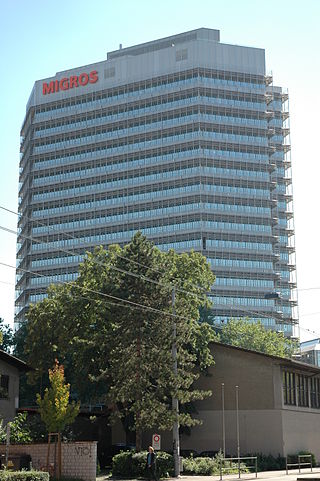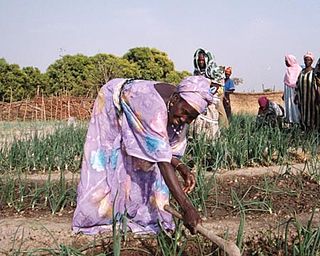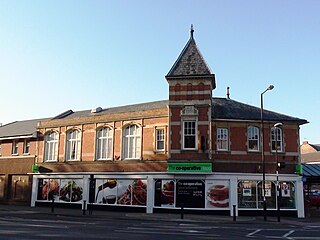Cooperatives of Norway have been created to represent the interest of either customers or suppliers. Areas with cooperatives include retailing, food manufacturing, banking and insurance. Most cooperatives are registered as BA entities.
Cooperatives of Norway have been created to represent the interest of either customers or suppliers. Areas with cooperatives include retailing, food manufacturing, banking and insurance. Most cooperatives are registered as BA entities.
Coop NKL is the second largest retail group in Norway, and is owned by numerous local cooperative associations. Coop concentrates mainly on grocery stores, but also has other chains including furniture stores, hardware stores and electronic stores. Nearly two million Norwegians are members of Coop.
Felleskjøpet is an agricultural store that provides everything necessary to operate a farm, including machinery.
The fishing and agriculture sectors dominate the supplier cooperatives. Among these are fish sales group and seven specialized food manufacturing companies, the largest being TINE and Nortura. In forestry 85% of all forestry produce is produced by the members and owners of the Norwegian Forest Owners Association, that also owns most of Moelven Industrier and parts of Norske Skog.
The mutual insurance company exists today as a number of marine insurance companies (like Gard or Skuld) while other mutual companies have merged into one large insurance company, Gjensidige, which "de-mutualized" in 2010.
Savings banks, or sparebank, have been created since the 1820s. In the late 1980s these were allowed to create stocks, or grunnfondsbevis, to increase their capital. This has led to a lot of the banks being partially private and no longer cooperatives. Still, many of the smaller bank have remained as true cooperatives. Formally the banks are considered self-owning and not customer owned.

A cooperative is "an autonomous association of persons united voluntarily to meet their common economic, social and cultural needs and aspirations through a jointly owned and democratically-controlled enterprise". Cooperatives are democratically controlled by their members, with each member having one vote in electing the board of directors. Cooperatives may include:

Hardware stores, sometimes known as DIY stores, sell household hardware for home improvement including: fasteners, building materials, hand tools, power tools, keys, locks, hinges, chains, plumbing supplies, electrical supplies, cleaning products, housewares, tools, utensils, paint, and lawn and garden products directly to consumers for use at home or for business. Many hardware stores have specialty departments unique to its region or its owner's interests. These departments include hunting and fishing supplies, plants and nursery products, marine and boating supplies, pet food and supplies, farm and ranch supplies including animal feed, swimming pool chemicals, homebrewing supplies and canning supplies. The five largest hardware retailers in the world are The Home Depot, Lowe's, Kingfisher of the United Kingdom, Obi of Germany, and Leroy Merlin of France.

ICA Gruppen AB (publ) (Swedish pronunciation: [ˈîːka]; "ICA Group"; from Inköpscentralernas aktiebolag, lit. '"the Purchasing Centres' Corporation"') (formerly Hakon Invest AB) is a Swedish retailer franchise with a focus on food and health. The group also owns a bank, real estate division and a pharmacy chain.
A mutual organization, or mutual society is an organization based on the principle of mutuality and governed by private law. Unlike a true cooperative, members usually do not contribute to the capital of the company by direct investment, but derive their right to profits and votes through their customer relationship. A mutual organization or society is often simply referred to as a mutual.
Demutualization is the process by which a customer-owned mutual organization (mutual) or co-operative changes legal form to a joint stock company. It is sometimes called stocking or privatization. As part of the demutualization process, members of a mutual usually receive a "windfall" payout, in the form of shares in the successor company, a cash payment, or a mixture of both. Mutualization or mutualisation is the opposite process, wherein a shareholder-owned company is converted into a mutual organization, typically through takeover by an existing mutual organization. Furthermore, re-mutualization depicts the process of aligning or refreshing the interest and objectives of the members of the mutual society.

Migros is Switzerland's largest retail company, its largest supermarket chain and largest employer. It is also one of the forty largest retailers in the world. It is structured in the form of a cooperative federation, with more than two million members.

the Co-operative Group Society Limited, trading as Co-operative Group Limited, or as Co-op, is a British consumer co-operative with a group of retail businesses including grocery retail and wholesale, legal services, funerals and insurance retailing.

An agricultural cooperative, also known as a farmers' co-op, is a producer cooperative in which farmers pool their resources in certain areas of activity.
The United Kingdom is home to a widespread and diverse co-operative movement, with over 7,000 registered co-operatives owned by 17 million individual members and which contribute £34bn a year to the British economy. Modern co-operation started with the Rochdale Pioneers' shop in the northern English town of Rochdale in 1844, though the history of co-operation in Britain can be traced back to before 1800. The British co-operative movement is most commonly associated with The Co-operative brand which has been adopted by several large consumers' co-operative societies; however, there are many thousands of registered co-operative businesses operating in the UK. Alongside these consumers' co-operatives, there exist many prominent agricultural co-operatives (621), co-operative housing providers (619), health and social care cooperatives (111), cooperative schools (834), retail co-operatives, co-operatively run community energy projects, football supporters' trusts, credit unions, and worker-owned businesses.
Foodtown is a northeastern United States supermarket cooperative founded in 1955 by Twin County Grocers in New Jersey. Currently, there are 66 Foodtown stores in New Jersey, New York, and Connecticut. Foodtown's corporate offices are located in Iselin, New Jersey.

A consumers' co-operative is an enterprise owned by consumers and managed democratically and that aims at fulfilling the needs and aspirations of its members. Such co-operatives operate within the market system, independently of the state, as a form of mutual aid, oriented toward service rather than pecuniary profit. Consumers' cooperatives often take the form of retail outlets owned and operated by their consumers, such as food co-ops. However, there are many types of consumers' cooperatives, operating in areas such as health care, insurance, housing, utilities and personal finance.

Coop amba, formerly FDB is a cooperative based in Denmark. The coop has 1.9 million members and three subsidiaries. The Coop Danmark subsidiary operates the retail store chains of Kvickly, Brugsen, SuperBrugsen, Dagli'Brugsen, LokalBrugsen, Fakta, Coop 365 and Irma supermarkets as well as the furniture company FDB Møbler. The last two subsidiaries comprise Coop Bank and Coop Invest.

Coop is one of Switzerland's largest retail and wholesale companies. It is structured in the form of a cooperative society with around 2.5 million members.

Coop Norge is a Norwegian cooperative. It is owned by 117 local cooperatives with approximately 2 million members. The company has its headquarters in Oslo.
Gjensidige Forsikring ASA is a Norwegian insurance company. The company traces its roots back to 1816 when a fire mutual was founded as Land Gjensidige Brandkasse in what is today Innlandet county. Gjensidige demutualised and listed on the Oslo Stock Exchange in December 2010. The firm, headquartered in Oslo, has a market share of some 26% (2021) in the Norwegian insurance market. The company has 36 branch offices in Norway, not including affiliated fire mutuals, and 1 million customers. Gjensidige has subsidiaries in Denmark, Sweden and The Baltics.
The history of the cooperative movement concerns the origins and history of cooperatives across the world. Although cooperative arrangements, such as mutual insurance, and principles of cooperation existed long before, the cooperative movement began with the application of cooperative principles to business organization.

Gilde Norsk Kjøtt is a defunct Norwegian red meat processing company organised as an agricultural cooperative. The company was by far the largest processor in the country when it merged with Prior Norge in 2006 to create Nortura. The company had gradually grown together as the slaughter cooperatives in the country had merged. It was not until 2000 that the company fully merged into one legal entity. Before this it had been an association between various local slaughterhouses.

The South Korean National Agricultural Cooperative Federation was established in 1961 to enhance the social and economic status of its membership and to promote a balanced development of the national economy. Its role is divided into three areas: marketing and supply, banking and insurance, and extension services.
A cooperative is an association of persons who cooperate for their mutual benefit.